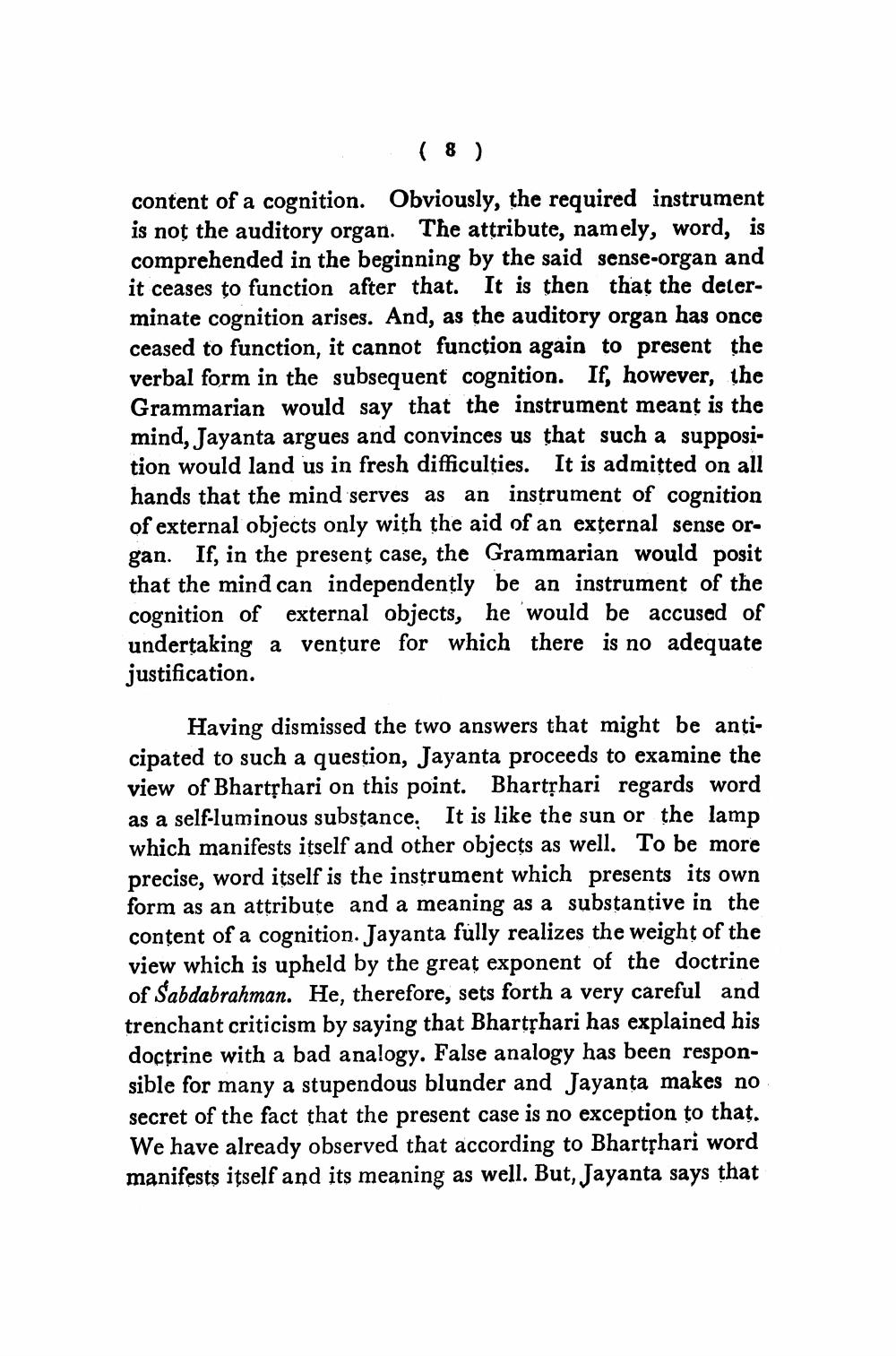________________
(
8
)
content of a cognition. Obviously, the required instrument is not the auditory organ. The attribute, namely, word, is comprehended in the beginning by the said sense-organ and it ceases to function after that. It is then that the determinate cognition arises. And, as the auditory organ has once ceased to function, it cannot function again to present the verbal form in the subsequent cognition. If, however, the Grammarian would say that the instrument meant is the mind, Jayanta argues and convinces us that such a supposition would land us in fresh difficulties. It is admitted on all hands that the mind serves as an instrument of cognition of external objects only with the aid of an external sense organ. If, in the present case, the Grammarian would posit that the mind can independently be an instrument of the cognition of external objects, he would be accused of undertaking a venture for which there is no adequate justification.
Having dismissed the two answers that might be anticipated to such a question, Jayanta proceeds to examine the view of BhartȚhari on this point. Bhartphari regards word as a self-luminous substance. It is like the sun or the lamp which manifests itself and other objects as well. To be more precise, word itself is the instrument which presents its own form as an attribute and a meaning as a substantive in the content of a cognition. Jayanta fülly realizes the weight of the view which is upheld by the great exponent of the doctrine of Sabdabrahman. He, therefore, sets forth a very careful and trenchant criticism by saying that Bhartphari has explained his doctrine with a bad analogy. False analogy has been responsible for many a stupendous blunder and Jayanta makes no secret of the fact that the present case is no exception to that. We have already observed that according to Bhartphari word manifests itself and its meaning as well. But, Jayanta says that




